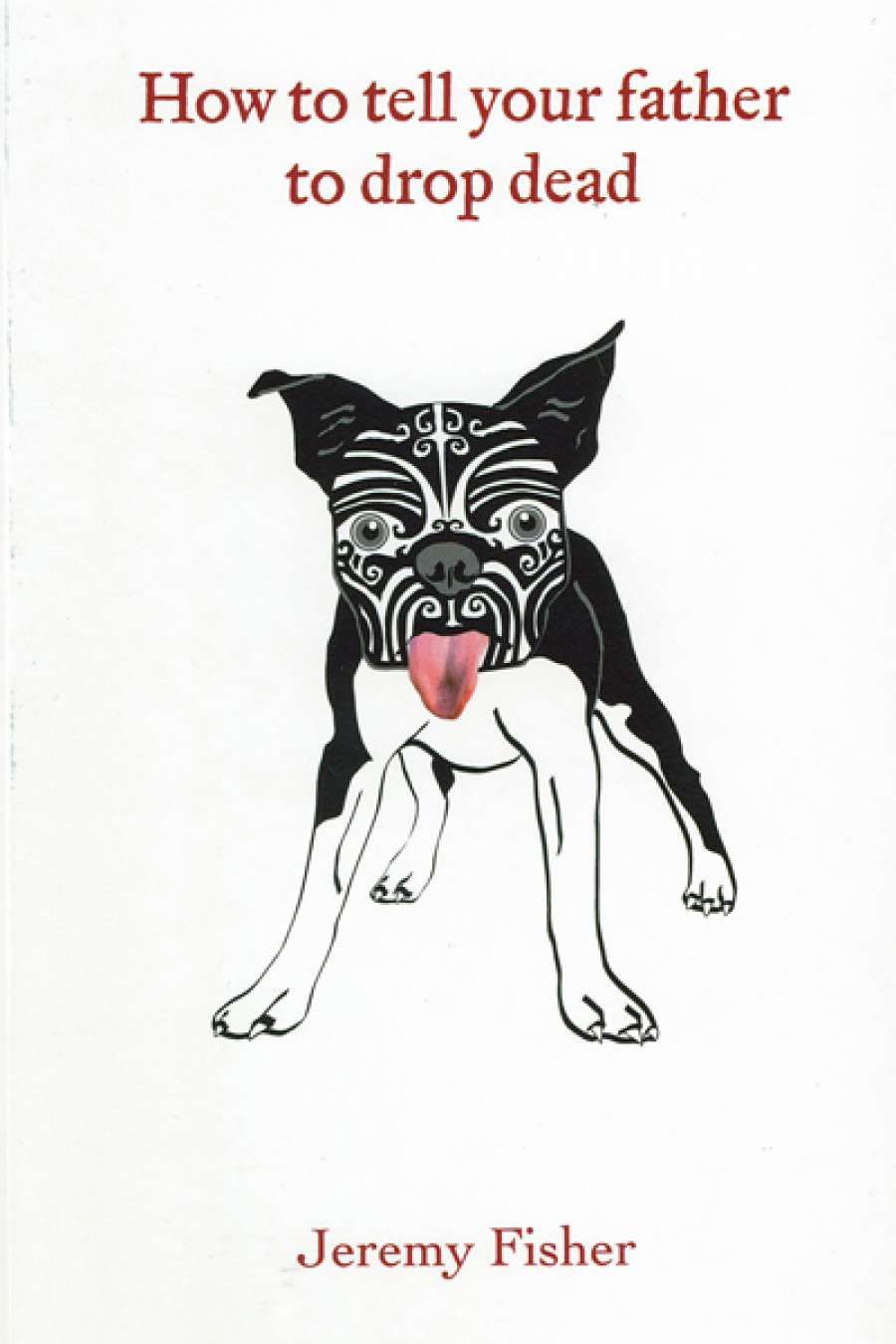
- Free Article: No
- Contents Category: Fiction
- Custom Article Title: Jay Daniel Thompson on 'How to Tell Your Father to Drop Dead'
- Review Article: Yes
- Online Only: No
- Custom Highlight Text:
The title of Jeremy Fisher’s latest tome is deceptive. This reviewer expected a zany children’s book. Actually, How to Tell Your Father to Drop Dead is a subdued look at masculinity in Australian history. The text comprises autobiographical fragments and short stories. Fisher recalls growing up in a culture where homosexuality was ‘invisible’. He describes the heady days of the Gay Liberation movement in the 1970s. The author remembers his relationship with his father. The older man is described as an Errol Flynn lookalike who, at the age of sixteen, killed a boar and whose body was (decades later) cremated alongside that animal’s tusks. There is a piece on gay male sadomasochism in Sydney’s western suburbs.
- Book 1 Title: How to Tell Your Father to Drop Dead
- Book 1 Biblio: Fat Frog Books, $26.95 pb, 150 pp, 9780959035049
At its best, Fisher’s book is frank and intimate. The author entrusts his readers with recollections of life as a gay man in a rapidly changing (though frequently homophobic) society. He evokes the optimism of political activism and the experience of living in a same-sex family in multicultural suburbia. Moments of bleakness are juxtaposed with bursts of humour.
Some sections would have benefited from greater editorial intervention. For example, readers are advised that in Berlin, the ‘sexual man’ is free to explore the multiple ‘temptations’ offered by that city’s ‘hedonistic underbelly’. This passage is almost laughably clichéd, not to mention euphemistic (‘sexual’ is a code word for ‘homosexual’). The chapter entitled ‘The Liberation Centre’ seems to be a satire about racist political discourses surrounding immigration, but this is never entirely clear. The schlocky surrealism of this chapter is misplaced in a volume that aims primarily for literary realism.
How to Tell Your Father to Drop Dead has its flaws, but is nevertheless a worthy contribution to the field of Australian queer writing. The book is also a testament to Fisher’s storytelling abilities.


Comments powered by CComment